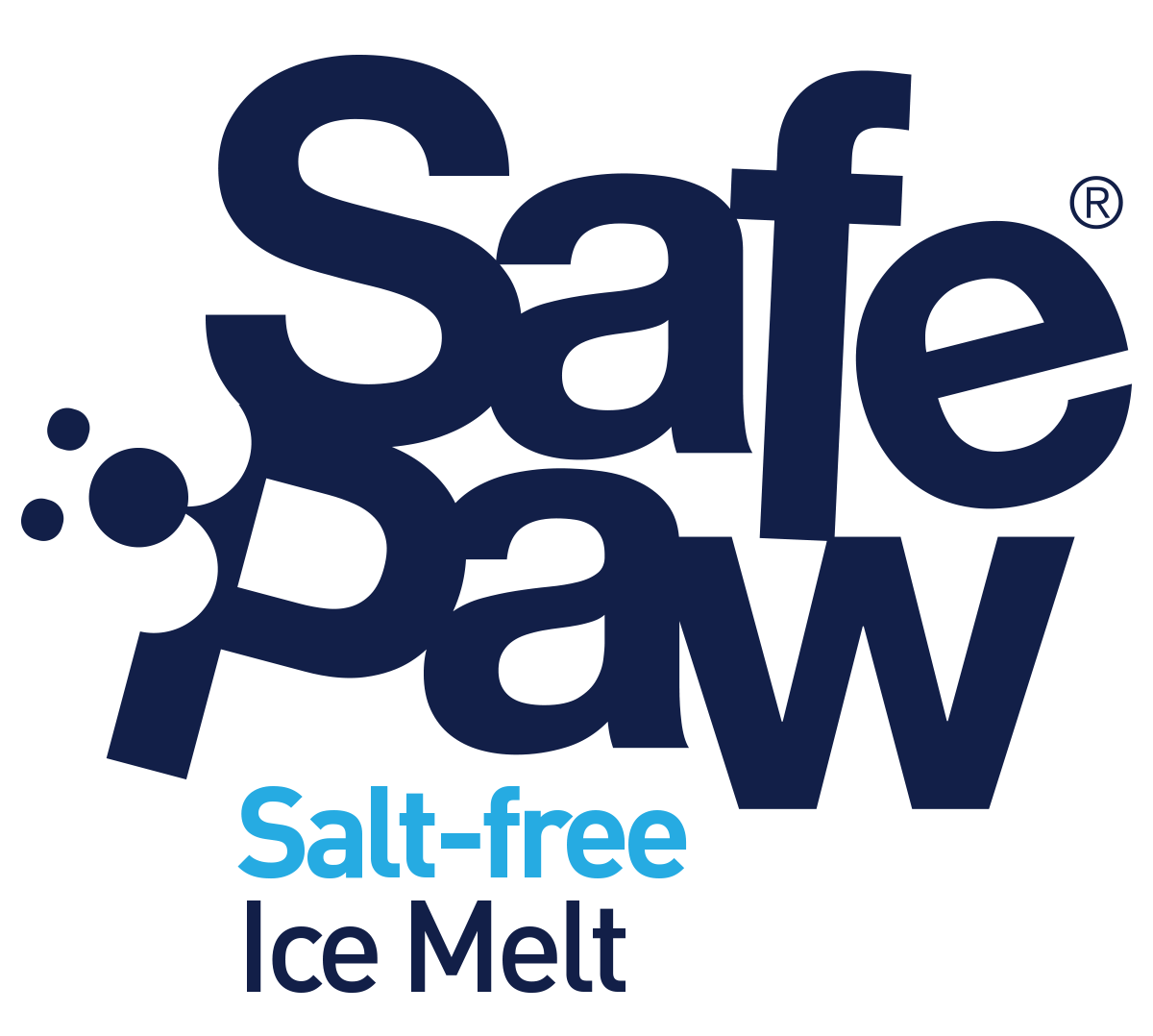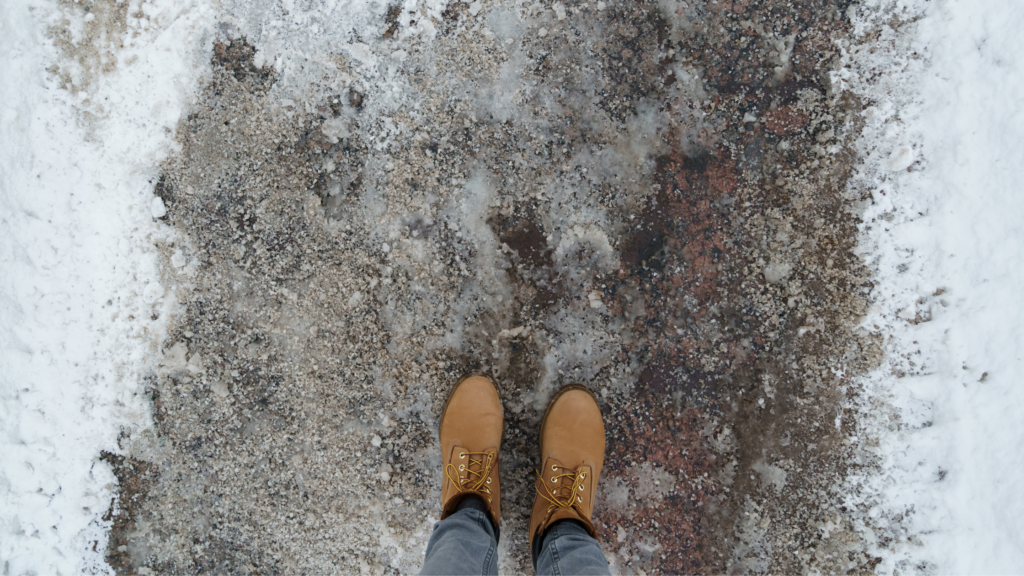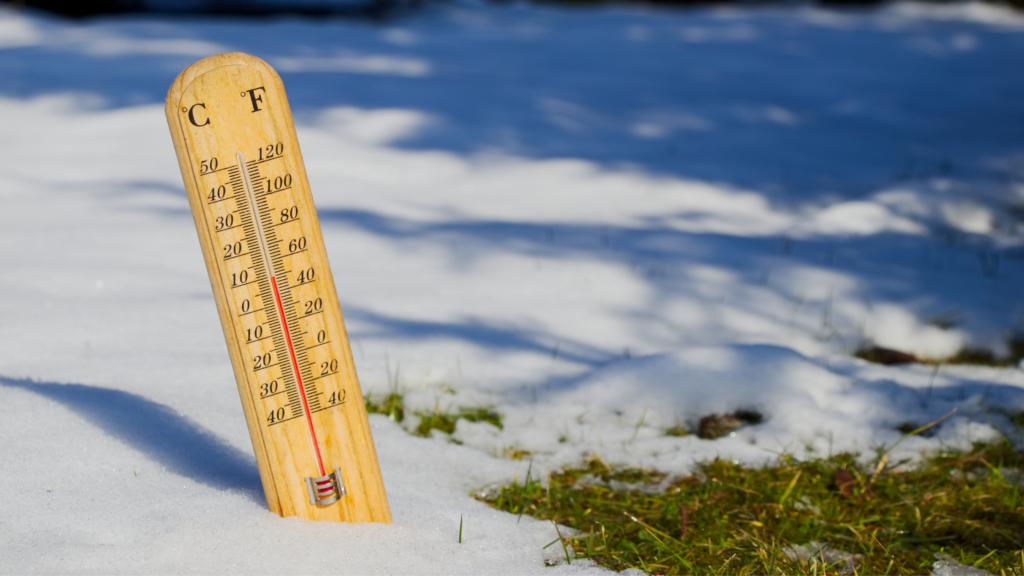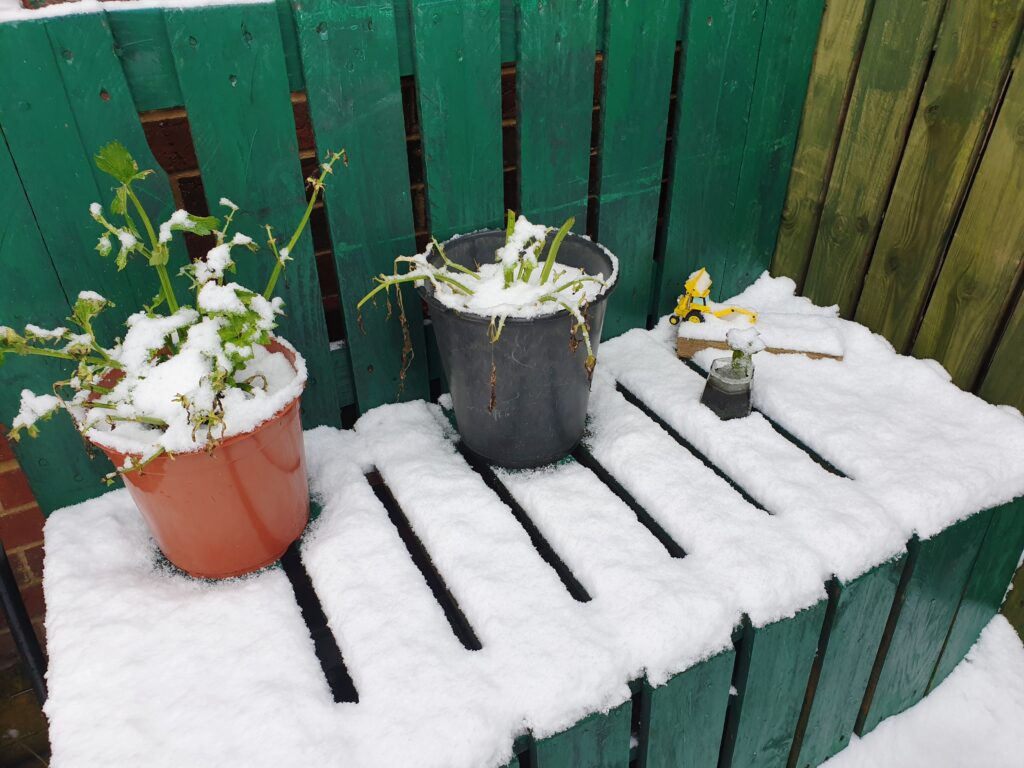
Winter brings icy roads, driveways, and sidewalks, making ice melt products essential for safety. Among popular options, ice melt magnesium chloride stands out for its effectiveness at lower temperatures. However, its use comes with hidden costs that affect the environment, infrastructure, and health. Here’s a closer look at the benefits and drawbacks of magnesium chloride and why alternatives like Safe Paw and other salt-free solutions are better than traditional ice melter salt.
Table of Contents
How Magnesium Chloride Works as an Ice Melt
Magnesium chloride is effective at melting ice in temperatures as low as -15°C (5°F). It works by lowering the freezing point of water, creating a brine that prevents ice from bonding to surfaces. Its rapid action and ability to work in colder climates make it a popular choice over traditional ice melter salt for municipalities and homeowners.
Get ready for winter with Safe Paw: The Pet-Friendly Ice Melter that cares – for your home, pets, and planet.
Environmental Impact of Magnesium Chloride as an Ice Melt
While magnesium chloride is considered less harmful than some salts, its environmental effects cannot be ignored.
- Soil Health and Vegetation: Runoff from magnesium chloride affects soil health, displacing essential nutrients and making the soil infertile. Plants near treated areas may suffer damage similar to the harm caused by ice melter salt.
- Aquatic Ecosystems: When magnesium chloride enters waterways, it increases salinity levels, disrupting aquatic ecosystems and endangering freshwater species.
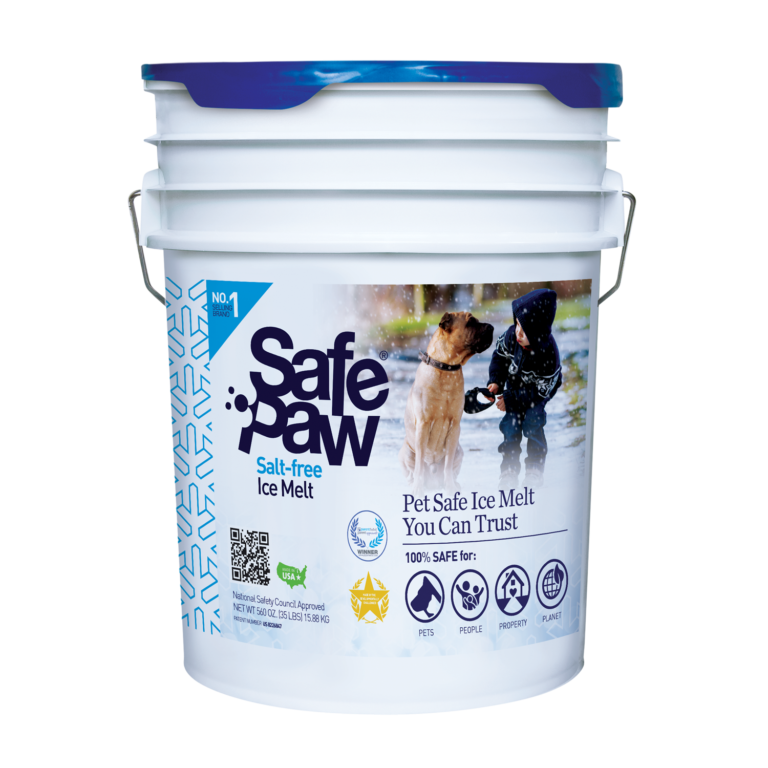
Safe Paw
It is a pet-friendly, eco-friendly ice melt that is safe for your family, pets, and property. It is made with a unique formula that is gentle on paws and concrete, and it melts ice and snow quickly and effectively.
Safe Paw is the perfect choice for winter weather!
Health and Safety Concerns Associated with Magnesium Chloride
Magnesium chloride poses health risks similar to traditional ice melter salt, affecting both humans and pets:
- Skin and Respiratory Irritation: Prolonged exposure to magnesium chloride can irritate skin, eyes, and respiratory systems.
- Hazards to Pets: Pets walking on magnesium chloride-treated surfaces may experience paw irritation or burns. Ingesting residues, much like with standard ice melter salt, can lead to gastrointestinal distress.
Comparative Analysis: Magnesium Chloride vs. Other De-Icing Agents
When evaluating ice melt magnesium chloride against other products, such as calcium chloride or sodium chloride-based ice melter salt, several distinctions emerge:
- Efficacy: Magnesium chloride works in colder temperatures than sodium chloride but is less potent than calcium chloride.
- Cost: It is more expensive than sodium chloride but cheaper than calcium chloride.
- Safety: While magnesium chloride is less corrosive, it still poses risks to concrete and vegetation, like traditional ice melter salt.
Get ready for winter with Safe Paw: The Pet-Friendly Ice Melter that cares – for your home, pets, and planet.
Long-Term Effects of Magnesium Chloride on Infrastructure
Despite being less corrosive than other salts, magnesium chloride can still harm infrastructure over time:
- Concrete and Asphalt: Repeated applications accelerate freeze-thaw damage, leading to cracks and scaling.
- Metal Corrosion: Magnesium chloride corrodes metal structures and vehicles, resulting in costly repairs, similar to the effects of ice melter salt.
Exploring Eco-Friendly and Safe Alternatives to Magnesium Chloride
For those seeking safer options, salt-free solutions like Safe Paw offer an ideal alternative to both magnesium chloride and ice melter salt:
- Pet and Child Safe: Safe Paw’s salt-free, non-toxic formula ensures no harm to pets or children.
- Non-Corrosive: It protects concrete, asphalt, and metal, eliminating the damage associated with salt-based products.
- Eco-Friendly: Biodegradable and safe for plants, soil, and water systems, Safe Paw is a sustainable choice.
- Effective in Extreme Cold: Unlike ice melter salt, Safe Paw performs reliably at temperatures as low as -19°C (-2°F).
Get ready for winter with Safe Paw: The Pet-Friendly Ice Melter that cares – for your home, pets, and planet.
Magnesium Chloride vs Calcium Chloride: Do Homeowners Really Win Either Way?
After learning about the risks of magnesium chloride, many people ask about magnesium chloride vs calcium chloride. On paper, it sounds like a straightforward choice: magnesium chloride is less aggressive, calcium chloride is stronger. But does that mean homeowners actually benefit from picking one over the other?
Here’s the reality: both options come with compromises. Calcium chloride might outperform magnesium chloride in extreme lows, but it’s also harsher on skin and surfaces. Magnesium chloride may appear gentler, but over time it still damages concrete, affects soil, and can irritate pets’ paws. In other words, you’re not avoiding the problems—you’re simply deciding which version of the same problem you want to deal with.
That’s why many families eventually shift the question away from “which chloride is better” to “do I need a chloride product at all?” Because in the long run, neither salt-based option fully protects your property or your pets.
Calcium Chloride vs Magnesium Chloride: Which One Fits Canadian Winters?
In cold-weather forums, the calcium chloride vs magnesium chloride debate pops up every winter. Canadian homeowners, in particular, often wonder if calcium chloride is worth the cost since it’s known to work at much lower temperatures than magnesium chloride. But what’s often overlooked is that Canadian winters aren’t just about temperature—they’re about longevity.
With storms rolling in week after week, the repeated use of chloride products adds up. Driveways see more cracking, vehicles face more corrosion, and gardens take a bigger hit every spring. So while calcium chloride may seem more “Canadian-proof,” both options wear down surfaces and increase maintenance costs over time.
This is where chloride-free solutions make sense. Instead of playing tug-of-war between two imperfect products, Safe Paw and similar alternatives allow homeowners to focus on results without bracing for side effects year after year.
Best Salt for Sidewalks: Why the Real Answer Isn’t Salt at All
Sidewalk safety is one of the biggest reasons people buy deicers in the first place, so it’s natural to ask: what’s the best salt for sidewalks? The honest answer is that no salt is truly good for them. Sodium chloride, magnesium chloride, calcium chloride—all accelerate the freeze-thaw cycle that eventually breaks down concrete. The more you use, the sooner your sidewalks will need patching or replacement.
If the goal is safe sidewalks without springtime repair bills, the smarter question is: what can keep sidewalks clear without damaging them? That’s where non-corrosive, salt-free products stand out. They melt ice effectively but don’t create the micro-cracks that expand into bigger structural problems. For homeowners, that means fewer slip-and-fall risks in winter and fewer repair costs when the snow is gone.
So the “best salt” is actually no salt—it’s finding a chloride-free solution that avoids the cycle of damage altogether.
Magnesium Chloride Ice Melt Canada: Popular but Not Perfect
A quick search for magnesium chloride ice melt Canada shows just how popular it has become. Hardware stores stock it widely, and it’s often promoted as a step up from traditional rock salt. For Canadian families dealing with bitter cold, that promise of low-temperature performance makes it tempting.
But widespread use has revealed some downsides. Environmental agencies in Canada have raised concerns about chloride runoff into freshwater lakes and rivers, which are central to Canadian ecosystems and recreation. On a household level, many pet owners report irritation in their dogs’ paws after walking on treated surfaces. And while magnesium chloride may be less aggressive than calcium chloride, over a long winter season the cumulative effects on driveways and vehicles are still noticeable.
That’s why more Canadians are moving toward salt-free products that match the country’s climate without adding to long-term costs or ecological concerns. It’s not about dismissing magnesium chloride entirely—it’s about recognizing that “less harmful” doesn’t mean “safe.”
A Shift in the Way We Think About Ice Melt
The deeper you go into the debates—magnesium chloride vs calcium chloride, calcium chloride vs magnesium chloride, or even which is the best salt for sidewalks—the more it becomes clear that salt-based products are stuck in a cycle of trade-offs. They may offer short-term solutions, but the long-term reality is surface damage, environmental harm, and risks to health and pets. Even the popularity of magnesium chloride ice melt Canada shows that many people are searching for answers, but not everyone realizes that chloride-free options exist.
What homeowners really want is a product that works when it’s cold, protects their property, keeps their pets safe, and doesn’t backfire in spring. Salt-free alternatives like Safe Paw answer that need by offering effective ice melting without the compromises. It’s not just about melting ice—it’s about rethinking how we handle winter altogether.
Conclusion
The truth is, the debate of magnesium chloride vs calcium chloride or calcium chloride vs magnesium chloride only highlights how limited salt-based products really are. The question of the best salt for sidewalks points to the same reality: salt simply isn’t built for long-term protection. And while magnesium chloride ice melt Canada remains widely available, popularity doesn’t erase the risks it carries for pets, property, and the environment.
That’s why Safe Paw offers such a different answer. By stepping outside the salt cycle entirely, it gives families a product that melts ice in extreme cold, doesn’t corrode surfaces, and keeps pets safe. This winter, instead of choosing between two versions of the same problem, Canadians can choose a solution designed to eliminate the problem altogether.
Try Our Other Winter Safety Products
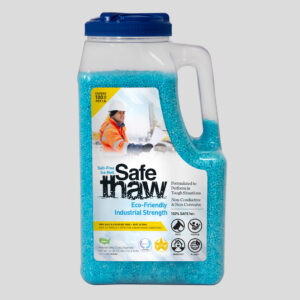
Safe Thaw
Safe Thaw was created as the ice management solution for tough winter environments. Ideal in commercial and industrial properties, shops, government agencies, bridges, construction. It’s 100% Salt-Free and Chloride-Free.
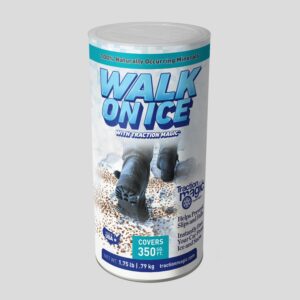
Walk On Ice
The slip and fall prevention solution, for any icy or snowy surface, on a handy portable package! Lightly spread around your walkway, driveway, vehicle, tires, and pathways. Turn ANY icy surface instantly, into a non-skid, slip-free surface.
